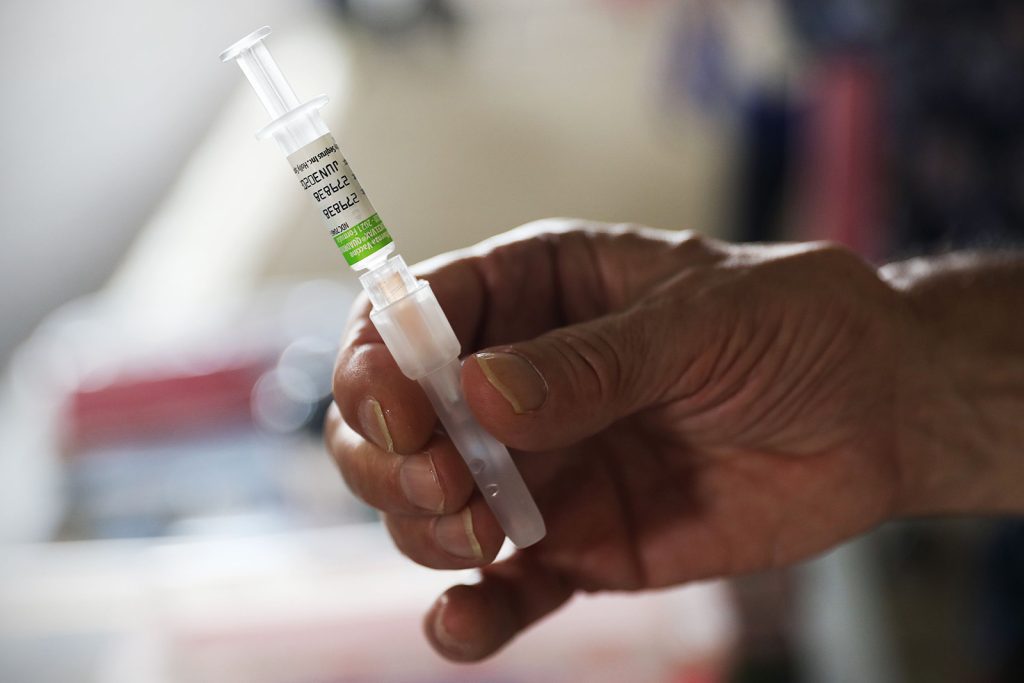Jessie Hellmann | (TNS) CQ-Roll Call
Community health centers and organizations that mainly help low-income people are being especially harmed by the largest hack in health care history. This hack has interrupted payments for thousands of health care providers for a whole month.
The hack targeted Change Healthcare, the clearinghouse for 30% of medical claims in the United States. This has led providers to seek other funding sources to survive. For large providers, like many health care systems, they are using their emergency reserves. However, smaller providers, such as many community health centers, may need to take out lines of credit with high interest rates, miss payments to vendors, and seek help from insurers who are willing to make upfront payments.
“It’s been very tough for us,” said Robert Hilliard Jr., chief executive officer of Legacy Community Health, based in Houston.
Legacy, which has 57 clinics across Texas, processes about half of its claims through Change Healthcare. It currently has about eight figures in unpaid claims waiting to be processed, he said.
“We’ve had to extend a line of credit with a bank because we’ve had no funds” and negotiate with vendors on missed payments, Hilliard said.
The debate about the Change Healthcare hack has focused on the impact on large health care systems that handle massive amounts of claims. Americans spent $1.4 trillion on hospital care in 2022.
But hospitals have more resources to deal with emergencies like this, unlike many community health centers. A study of 274 nonprofit hospitals and health systems found they have an average of 218 days’ cash on hand.
But that’s not the case for many community health centers, which mainly serve Medicaid patients, depend on grants, and have small operating profits. On average, health centers had 64 days of cash on hand in 2016.
Fewer resources
UnitedHealth Group, which owns Change Healthcare, has started testing systems for submitting claims this week. However, it's unclear when it will be fully operational again. And processing claims that have been sitting around for a month will take time.
“I do worry that as big health care organizations come back online that people will stop caring as much about the impact on everybody who is left,” said Julia Skapik, medical director for informatics at the National Association of Community Health Centers.
While the Biden administration has asked insurers to prioritize advance payments to small, rural, and safety-net health care providers facing cash flow problems, Skapik said that directive should have come earlier.
The federal government has been criticized for its slow response to the attack. While it has allowed providers to request advance Medicare fee-for-service payments, it can only encourage the private industry to do the same. This includes Medicare Advantage plans, which cover half of Medicare beneficiaries, and Medicaid Managed Care plans, which cover about 90% of Medicaid beneficiaries.
The government's request success is still uncertain. Apart from UnitedHealth Group, which stated it has given $2 billion to providers, insurers have not publicly shared information about the financial assistance they have sent out.
Several health plans organizations wrote in a letter to Biden administration officials this week that they are committed to providing advance payments to affected providers in need. They also mentioned proactive outreach to remaining providers facing operational challenges and support for providers switching to alternative services.
Blue Cross Blue Shield also confirmed to CQ Roll Call that it is advancing payments to in-network providers.
In a separate letter, Medicaid Health Plans of America, representing Medicaid managed care plans, stated that its members are committed to making advance payments, which will need to be repaid and are intended to cover unpaid claims, not costs associated with the fallout from the hack.
“There’s been no effort to talk about how to relieve us from those costs,” Hilliard said.
Unpaid claims
Providers have also mentioned that while they appreciate the assistance, the amount being offered is small compared with the unpaid claims they are experiencing.
Hilliard said UnitedHealth Group has offered money, and while it came quickly, it is less than 10% of what is being held up in claims right now.
Peggy Anderson, president and CEO of Third Street Family Health Services, based in Mansfield, Ohio, said revenue dropped from an average of $650,000 per week to $180,000 per week.
“That’s a pretty significant loss for us not knowing when things will be up and running again,” she said.
Third Street Family Health Services was able to get approved for $100,000 in assistance from Optum, $80,000 of which has come through so far. The center has been able to use some of its cash on hand and took out a line of credit.
“While the $100,000 is wonderful, we’re close to a million dollars now that’s just sitting there, and that’s revenue that we fully anticipated getting in,” Anderson said. She hopes policymakers recognize the need for a “safety net” system that can back up critical health care providers when emergencies like this happen in the future.
Some providers have had more luck.
Berinna Doggett, executive vice president of health care and community resources for So Others Might Eat, which has two health care clinics in Washington, D.C., said they have switched clearinghouses and received checks from Medicaid managed care plans over the past few weeks.
The problem occurs if insurers haven’t switched clearinghouses. Also, the process can move slowly.
“It’s minimal. It’s nowhere where we were,” Doggett said.
©2024 CQ-Roll Call, Inc., All Rights Reserved. Visit
___
cqrollcall.com. Distributed by Tribune Content Agency, LLC. The attack, which severely affected Change Healthcare, the company that processes 30% of medical claims in the United States, has required medical providers to seek different ways of getting money to survive.









